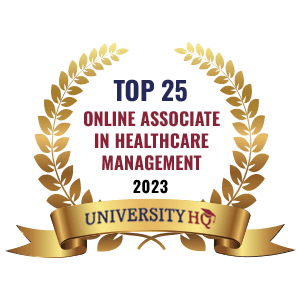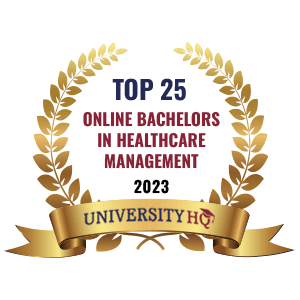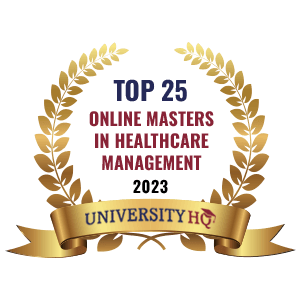What is Healthcare Management?
Many colleges and universities in Missouri offer a healthcare administration degree and other related subjects. Majoring in this field is typically good preparation for a wide variety of careers in hospitals, health insurance companies, and nursing homes. This area of study is ideal for individuals interested in learning how to develop and administer healthcare programs in a wide variety of different medical settings. While curriculums vary, prospective students can generally expect to gain the knowledge and skills needed to help medical facilities provide high quality care to patients.
Healthcare managers perform many tasks associated with planning, directing, and coordinating medical and health services offered by their employers. These professionals can work in a variety of facilities, from small clinics to major hospitals. They may also work for groups of physicians managing their own practices. Opportunities exist in nursing homes, residential care facilities, and outpatient care centers.
Generally, healthcare managers work full-time, with hours in the evenings and weekends sometimes required. Functioning as part of on-call emergency rotations may also be necessary.
While expectations vary by facility, these professionals are often responsible for improving overall efficiency and quality of the healthcare services provided. They may oversee just one area or hold multiple roles. Some common duties include developing strategic departmental goals and objectives, recruiting new employees, providing developmental training, and supervising staff members. In addition to managing workers, healthcare administration professionals often facilitate patient payments, monitor available finances, and ensure operating costs remain within established limits. They must also verify all activities comply with various state and national laws and regulations.
Those interested in becoming healthcare managers should realize that job titles often differ depending on work setting. They are also sometimes referred to as healthcare executives, nursing home administrators, clinical managers, and health information managers.

Featured Online Programs
Online Healthcare Management Education in Missouri
According to the US Bureau of Labor Statistics (BLS), employment for medical and health services managers is projected to grow 28% from 2021 to 2031. This is much faster than the average for all occupations and will result in an increase of about 56,600 job openings each year.
Educational services, healthcare, and social assistance is the fourth largest industry in Missouri, accounting for $33.3 billion in revenue each year. Based on data provided by the BLS, the state employed 7,180 medical and health services managers in the healthcare industry in May 2022. Additionally, the annual mean wage for these professionals in the state was $111,970. Notably, this is significantly above the reported annual mean wage of $54,520 for all occupations in the state.
With significant growth expected within the healthcare industry, it’s not surprising that many higher education institutions offer relevant degree programs. While the major is available at colleges and universities throughout the nation, prospective students planning to work in Missouri specifically will want to consider schools located in the state first. This ensures the most geographically relevant instruction, which can be particularly important when seeking employment locally and/or applying for licensure in Missouri.
Students interested in earning a healthcare management education will find programs in Missouri that offer a solid foundation of knowledge, real world experience, and more. Some of these programs in Missouri are even offered online. Options include Lindenwood University, the University of Missouri, Saint Louis University, etc.
Missouri is home to many colleges and universities, several of which offer a healthcare administration degree and others in other related major areas of study. Prospective students typically have little difficulty funding programs at the associate, bachelor’s, master’s, and doctoral levels.
Notably, most professionals in this field obtain at least bachelor’s degrees. While some entry-level employment opportunities may be available to those with little or no higher education, opportunities like this are limited and pay less.
Online Associate (AS)

Associate degrees in health administration generally consist of 60 credit hours of coursework that take full-time students approximately two years to complete. As undergraduate programs, they are typically comprised of both general liberal arts and major-specific classes. In addition to the required communication, mathematics, and science subjects, healthcare administration students usually study healthcare technology, medical terminology, health sciences, marketing, and medical office administration. Curriculums are also typically designed to help those enrolled develop the various fundamental skills necessary to work in medical offices. Instruction in popular technologies, data systems, and medical coding methods is common. This level of degree is focused on teaching the core competencies of health administration rather than the business details.
Graduates are often prepared for employment as medical secretaries, medical assistants, and medical records technicians for physician offices or hospitals. Associate degrees in health administration can also lead to other entry-level administrative jobs at health-related facilities, though it may be difficult to move into higher-level roles without more education. Another benefit of earning associate degrees is that they generally cost less than traditional four-year programs.
Notably, associate degrees are ideal for individuals seeking to spend less on their education. These programs are most frequently offered by community colleges, which tend to charge lower tuition rates than traditional four-year colleges and universities.
Online Bachelors (BS)

Bachelor’s degrees in healthcare administration generally consist of 120 credit hours of coursework that take full-time students approximately four years to complete. As undergraduate programs, they are still typically comprised of both general liberal arts and major-specific classes. In addition to the required communication, mathematics, and science subjects, healthcare management students usually study healthcare law, management information systems, public health, and budgeting in healthcare. Other common subjects include principles in marketing, business law, and ethics.
Many colleges and universities also expect bachelor’s students in healthcare administration programs to complete residencies or internships. Participants typically work in actual healthcare facilities. This helps those enrolled gain real-world, hands-on experience in the field prior to graduation.
Graduates are typically qualified for jobs as medical office administrators, healthcare human resources managers, health information officers, and community service managers. Other positions dealing with the business side of medical facilities and organizations may also be available.
Your Online Healthcare Management Program
Online Masters (MS)

A master of health administration degree generally ranges from 30 to 45 credit hours of coursework that take full-time students approximately two to three years to complete. General liberal arts classes are no longer incorporated into the curriculum of a healthcare administration master. It’s common, however, for programs to require certain major-specific courses as prerequisites. Applicants must provide official transcripts proving proficiency in the designated areas prior to being admitted. This ensures everyone enrolled has the foundational knowledge necessary to succeed in graduate school.
Course requirements vary, but students should anticipate focusing exclusively on subject matter pertinent to the field. This often means studying various topics in management, business, accounting, and healthcare. Other commonly offered classes include medical terminology, hospital organization, health information systems, public health, health services management, human resources administration, strategic planning, and health economics. Another option is to earn a Master of Business Administration (MBA) with a concentration on healthcare administration or health information technology. This can prepare you for a more administrative role with a year of business subjects if you've previously worked directly with patients or in a similar function.
Again, many colleges and universities expect master’s degree students in healthcare administration programs to complete residencies or internships. These supervised administrative experiences often take place in hospitals and/or various healthcare consulting settings. While similar to those required of undergraduate students, graduate-level residencies tend to last much longer. In some cases, participation can even span an entire academic year.
Graduates often qualify for employment as medical records supervisors, hospital administrators, health information management managers, and healthcare consultants. Other opportunities may also be available, however. Additionally, those with master’s degrees tend to have more job options and make more money.
Online Doctorate (PhD)
A PhD or doctorate in healthcare administration can consist of between 60 and 120 credit hours that may take full-time students up to seven years to complete. These programs differ by institution, but often include instruction in advanced healthcare management, finance, public health, medical law, statistical analysis, and ethics in healthcare systems, as well as healthcare data and informatics. Students can expect to spend the first part of their enrollment participating in traditional classroom learning before transitioning to more independent study, research, and writing. Residencies are also commonly required, either in academic medical centers or others, as are dissertations prior to graduation.
These are terminal degrees representing the highest level of education possible in the field. As a result, graduates have many professional opportunities in healthcare management, research, and/or academia. Those with doctoral degrees may also qualify to lead large teams of other healthcare workers or obtain jobs as hospital CEOs.
Become a Healthcare Management in Missouri
Becoming a healthcare manager in Missouri generally begins with researching the various jobs available in the field. There are several relevant occupations, each with their own unique standards and expectations. Taking time to become familiar with your options will make it easier to identify your ultimate career goals. Once you select a profession of interest, it’s important to note its recommended education level. This will ensure you obtain the most appropriate academic degree. It can also help you choose the most useful elective courses, minor areas of study, academic concentrations, extracurricular activities, and/or internships.
Not all professionals in this field choose to pursue degrees in healthcare management. Sometimes it makes more sense for students to enroll in health administration, nursing, or other relevant subjects. Business is another common alternative, as long as the degree program focuses on both management and healthcare topics as well.
It’s important to note that companies and organizations in the state are responsible for establishing their own hiring standards. In most cases, healthcare management professionals in the state will need bachelor’s degrees. Education requirements do vary, however, depending on facility and the services provided. This can make those with master’s degrees more competitive when applying for jobs. Additionally, individuals with work experience in administrative or clinical roles at hospitals or other healthcare facilities will are often more desirable.
Depending of your preferred profession, it may also be necessary to obtain licensure. All nursing home administrators, for example, must be licensed in the states they work. Registered nurses and social workers must be licensed, as well. If you plan to pursue a job that requires a license, it’s imperative that you research all associated standards and expectations in Missouri.
Find Online Healthcare Management Programs
Professional certifications, on the other hand, are not generally required by state boards. Choosing to earn one or more additional credentials can, however, prove highly beneficial. Not only do they demonstrate dedication to the field, but they also show prospective employers that you possess general proficiency and/or expertise in various specialty subjects. As a result, hiring managers tend to prefer candidates with relevant certifications.
No single certification is recommended or appropriate for all health administration professionals, although credentials offered by the Health Information Management Association and the Project Management Institute tend to be well regarded. The most important factor to consider when considering your options is to ensure the certification(s) align well with your intended occupation and/or area of specialty.
Some prominent examples include:
- Fellow of the American College of Healthcare Executives (FACHE)
- Certified Medical Manager (CMM)
- Certified Healthcare Administrative Professionals (cHAP)
- Certified Professional in Health Care Risk Management (CPHRM)
- Certified in Healthcare Compliance (CHC)
- Certified Healthcare Financial Professional (CFHP)
- Certified Revenue Cycle Executive (CRCE)
- Registered Health Information Administrator (RHIA)
- Certified Professional in Healthcare Information and Management Systems (CPHIMS)
Additionally, many professionals holding healthcare management degrees seek membership with relevant organizations and associations. This is often beneficial because members gain access to a variety of perks. These vary, but often include academic journals, continuing education opportunities, service and product discounts, and professional networking events.
Some popular organizations and association in the field include:
- American Health Information Management Association (AAHIM)
- American Association of Health Care Administrative Management (AAHAM)
- The Southern Association of Workers’ Compensation Administrators (SAWCA)
- National Association of Healthcare Access Management (NAHAM)
- American College of Health Care Administrators (ACHCA)
- American Society of Healthcare Human Resources Administrators (ASHHRA)
Potential Careers for Healthcare Management Graduates
- Business Administrative Coordinator
Administrative coordinators facilitate interactions between various departments, vendors, and company workers. The organizations they work for typically task them with supervising and providing support to assigned staff members, but they may also be expected to assist as new team members are hired and evaluated. Additionally, it’s common for them to designate work assignments to employees and manage departmental budgets. According to PayScale, administrative coordinators make an average base salary of $48,358 per year. - Chief Compliance Officer
Chief compliance officers oversee a variety of financial operations for the companies that employ them. They also ensure all necessary compliance expectations are properly met. As a result, they are responsible for being familiar with any applicable rules, regulations, policies, and laws. Additionally, when issues do arise, they investigate and offer potential solutions. They may also be expected to provide insight regarding executive budget requests for new and continuing company initiatives. According to PayScale, chief compliance officers make an average base salary of $123,243 per year. - Chief Operations Officer
Chief operations officers plan and coordinate various aspects of the projects assigned to them. Their primary objective is typically to generate and establish strategies that increase overall profitability for the organizations they work for. To achieve this, they spend time collecting financial reports and organizing data into easily understood presentations. In some cases, they may also oversee internal training programs for new products and/or services. According to PayScale, chief operations officers make an average base salary of $120,621 per year. - Health Informatics Manager
Health information managers are employed by healthcare facilities to ensure medical information is stored and transferred in ways that meet all legal and ethical standards in the field. They are generally responsible for establishing the record-keeping methods utilized by staff and confirming that workers properly adhere to procedures. They may also create and implement new healthcare information management policies as issues with the process arise. According to PayScale, health information managers make an average base salary of $57,626 per year. - Healthcare Consultant
Healthcare consultants work to optimize patient care and improve cost management and overall facility efficiency. Typically hired by medical facility administrators, they start by performing thorough assessments that closely examine effectiveness, legal compliance, work environment, procedural flow, and financial processes. After gathering the necessary date, they report any potential problems identified during the process and share their research regarding possible solutions. According to PayScale, they make an average base salary of $80,351 per year. - Hospice Administrator
Hospice administrators work in medical care facilities offering hospice care to patients. They often coordinate a wide variety of aspects related to these care programs, including interacting with clients and overseeing community relations. They also frequently oversee legal compliance, business recordkeeping, staff selection, employee training, and worker supervision. Additionally, it’s common for them to spend time managing the program’s budget by monitoring spending. In some cases, they may be tasked with securing additional funding through grant applications. According to PayScale, hospice administrators make an average base salary of $89,869 per year. - Medical Secretary
Medical secretaries work in clinics, hospitals, and other medical facilities to performing various administrative duties. While responsibilities differ, they often greet customers, answer phone calls, and schedule patient appointments. They may also be expected to communicate with insurance companies in order to determine patient eligibility for treatment and the corresponding rates. by According to PayScale, these secretaries make an average base salary of $39,871 per year. - Rehabilitation Manager
Rehabilitation managers can be found working in physical, mental health, and addiction recovery facilities. They are typically responsible for overseeing and supervising daily operations, as well as meeting all government regulations and guidelines. They may also coordinate the hiring and training of new staff members. According to PayScale, rehabilitation managers make an average base salary of $88,541 per year. - Healthcare Administrator
Search All Programs
